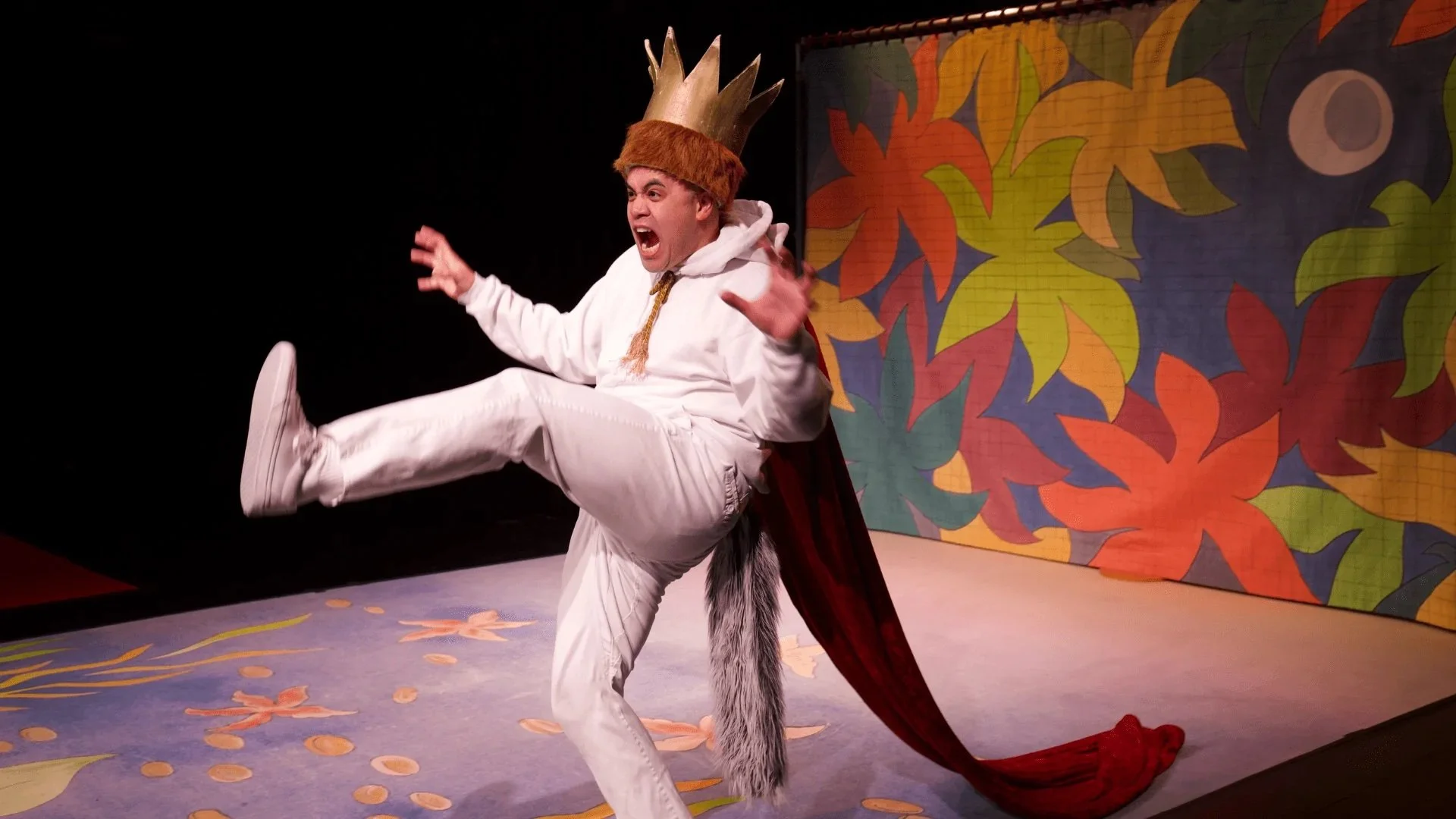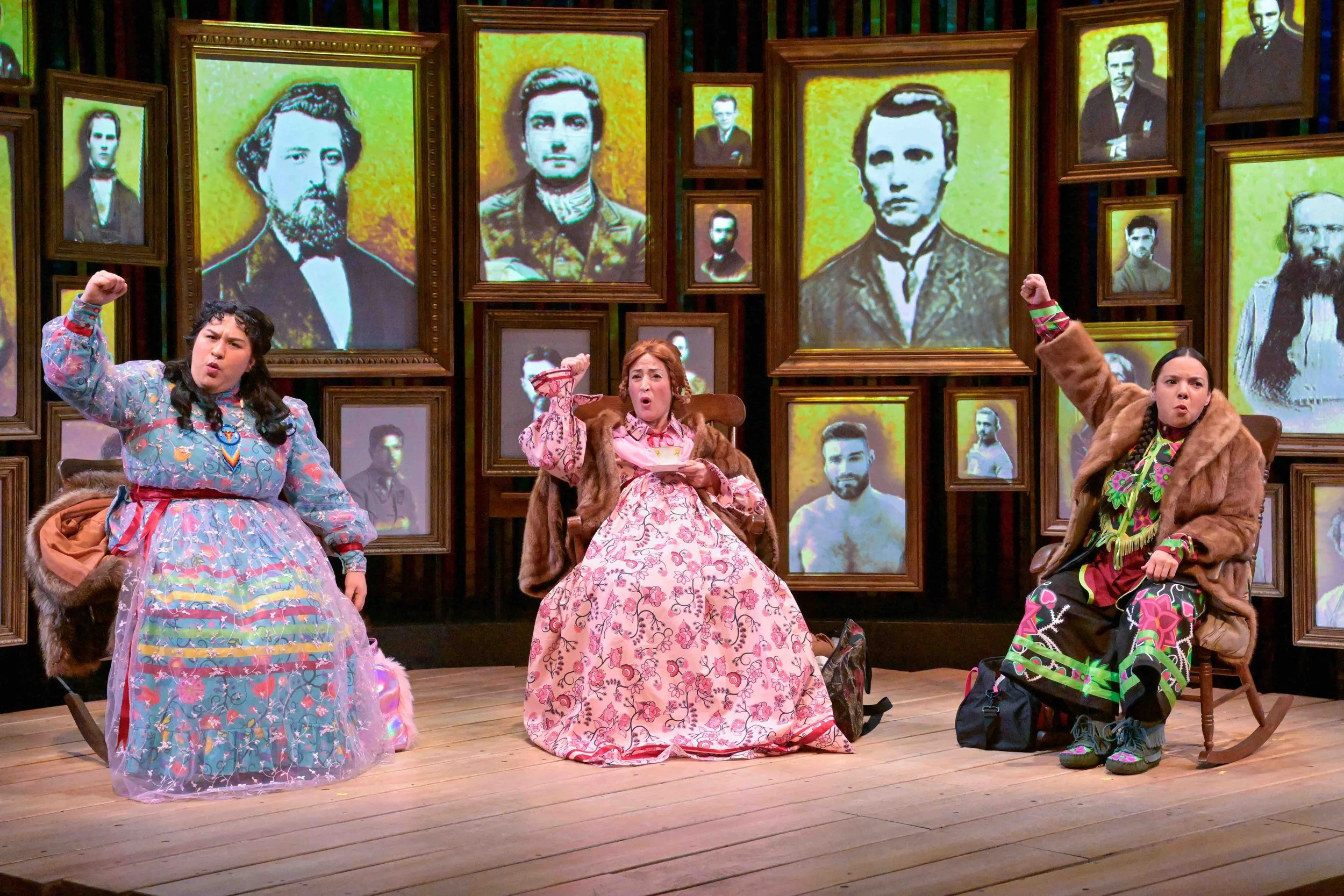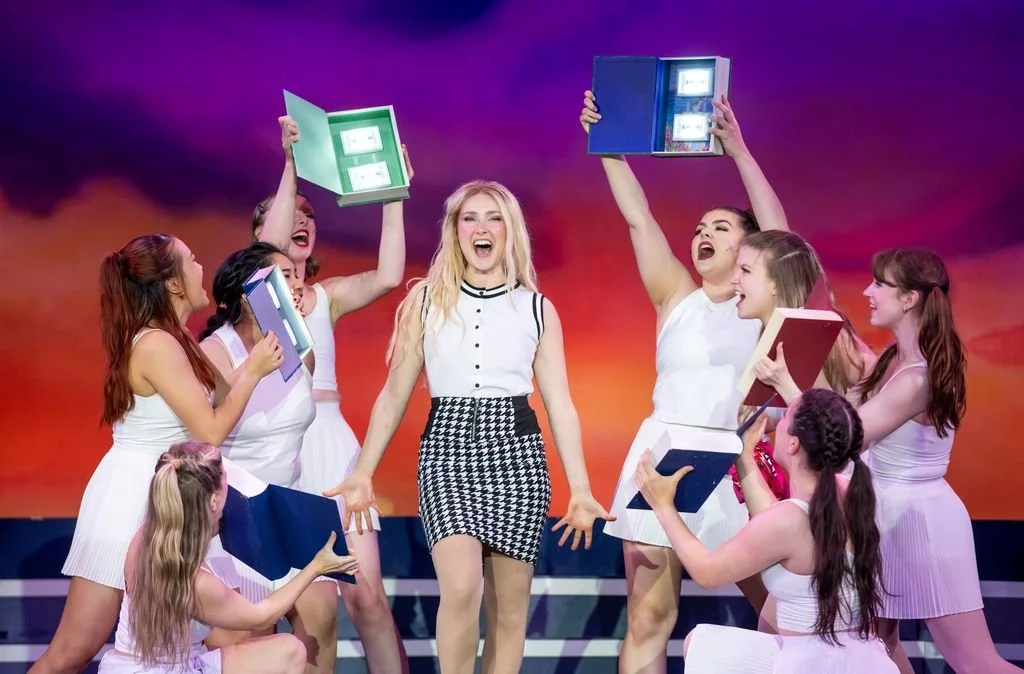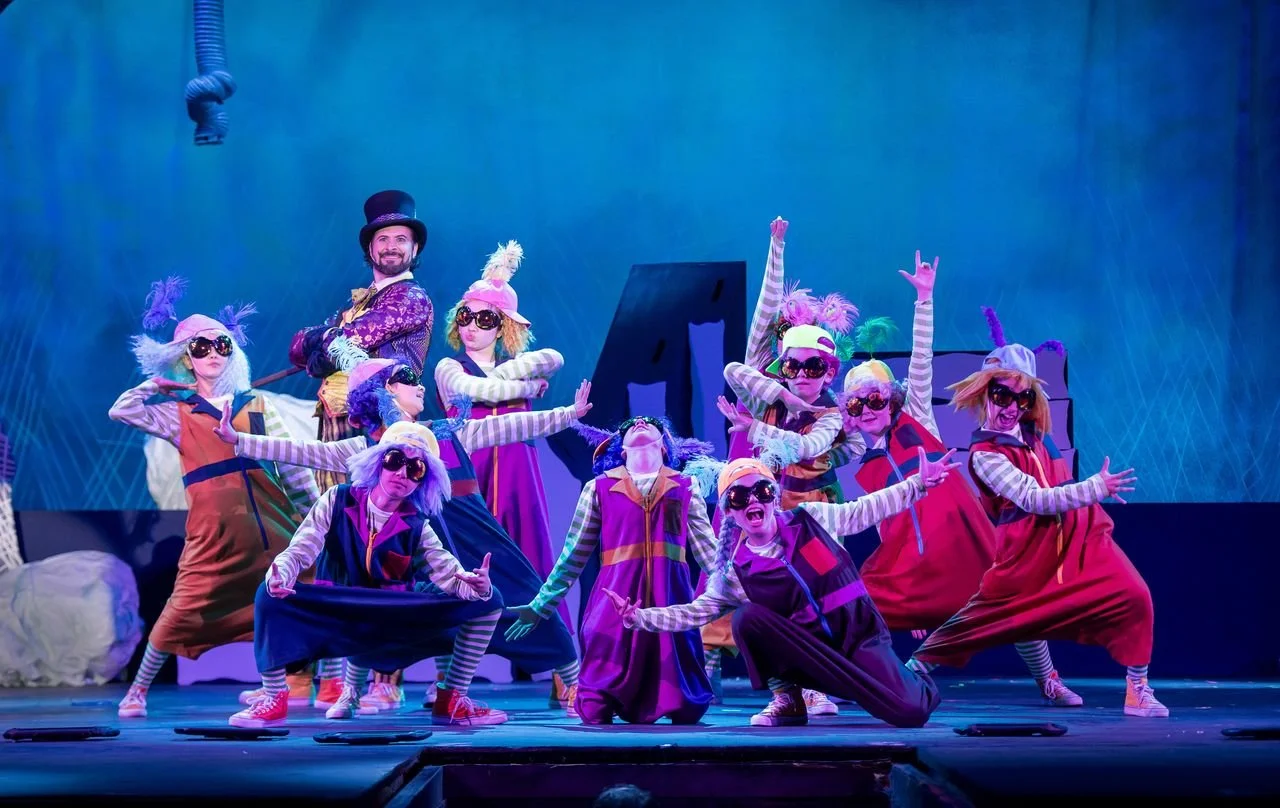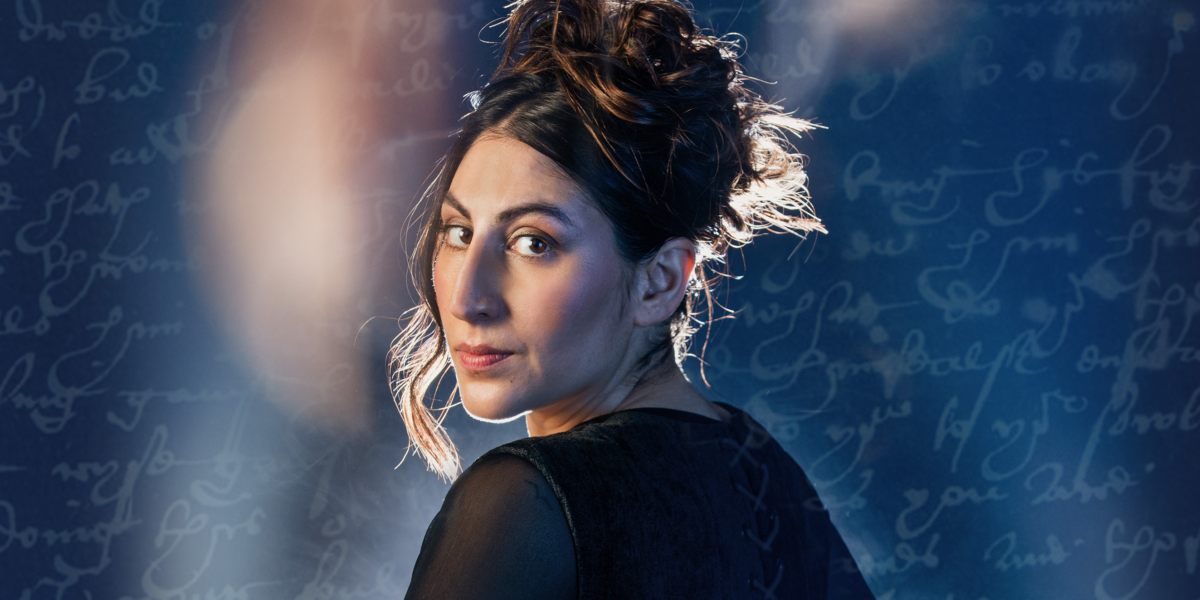Theatre review: Every Day She Rose poses unsettling, unanswered questions about privilege
As storylines switch between playwrights and the characters they’ve created, this challenging Zee Zee Theatre production spotlights hidden disparities separating two best friends
Jacob Woike (left) and Britney Mocca in Every Day She Rose. Photo by Tina Krueger Kulic
EVERY DAY SHE ROSE, A play by Andrea Scott and Nick Green, has some very important things to say, and chances are, these messages may seem foreign to some theatregoers. That’s likely the point.
The dynamic between a gay male and straight female who are best friends isn’t new territory in storytelling. But what’s far less common is a version that isn’t idealized—one shaped by the imbalance of privilege between the two, and the quiet tensions that can arise from it. Especially when the man is white and the woman is Black. If you’re thinking you’ve never seen that kind of story onstage, you’re probably right: stories like this aren’t usually written as plays. They’re lived experiences.
When we first meet two of the show’s characters, Mark (Jacob Woike) and Cathy-Ann (Britney Mocca), the 20-something best friends and roommates are getting ready to enjoy the 2016 Toronto Pride parade. After a Black Lives Matter protest disrupts the parade, Mark, who is white and gay, grumbles about how disrespected he feels. But Cathy-Ann, who is straight and Black, feels unsettled by Mark’s reaction.
The situation brings up an awkward topic: while both Mark and Cathy-Ann belong to communities that are often considered marginalized, Mark seems to be afforded more privilege. That’s the elephant in the room that Cathy-Ann seems to have been tiptoeing around for the years of their friendship, and now is finally time to address it, even at the risk of tarnishing their relationship.
But there’s a twist. Just as the plot is getting juicy, the house lights starkly come up and both actors instantly transform into different characters—the playwrights who are writing the story we’ve just been watching. These newly introduced characters are very different from their subjects. Unlike self-centred party boy Mark, his playwright Nick is mature and thoughtful. And unlike the insecure Cathy-Ann, her playwright Andrea is confident and deliberate. The similarities? He is queer and white, and she is straight and Black, and these characteristics and consequent lived experiences are what’s informing their art.
The structure is creative and there are many positives to the show overall. But the constant switching back and forth between the two sets of characters breaks narrative momentum. It’s hard to stay invested in either of the pairs when the stories are always interrupted.
The story of Mark and Cathy-Ann is by far the more compelling, mostly because Mark is terribly flawed, and Cathy-Ann is painfully conflicted. The playwrights’ story doesn’t have the same drive. Although there’s still the subtext of Nick’s inherent privilege over Andrea’s, at the end of the day, they’re both sensible, mature writers who, overall, seem to be quite comfortable with each other and in life.
But as the play tries to balance the two storylines, we see the playwrights engage in so many things that, quite frankly, aren’t interesting. Instead of watching two writers re-organize their story’s plot with Post-it notes, audiences would likely prefer to get back to Mark and Cathy-Ann’s world of Grindr hookups and roommate drama, set to a soundtrack of Ariana Grande and Taylor Swift. With so much switching back and forth, it’s difficult to pinpoint how one feels emotionally with the character journeys—let alone keep track of what has happened.
Still, Mocca and Woike nail each of their characters. Mocca’s uneasiness as Cathy-Ann and the wisdom she exudes as the playwright, and Woike’s egotistical yet somewhat endearing Mark, coupled with his playwright’s cautiousness to stay politically correct, all feel authentic. These are people we see every day—and what’s ironic is that it’s not too far-fetched to envision Mark and Cathy-Ann as the younger versions of the playwrights.
The play offers many thought-provoking pieces, including ones around the possible microaggressions that both Mark and Nick exhibit toward Cathy-Ann and Andrea, respectively. For example, did Nick just accidentally shove the rolled-up clothesline of Post-it notes on Andrea with too much force, or was he projecting? Who has the right to tell a marginalized group’s story? Where does one draw the line between championing their community and egotism?
These are questions that playwrights Scott and Green force the audience to contemplate, but never answer in the play. Moreover, it seems Scott and Green have intended that audiences take these questions out of the theatre with them.
The production’s directors, Cameron Mackenzie and Diane Roberts, have staged Every Day She Rose in such an intimate way—in the cozy Vancity Culture Lab—that there’s a conversational quality.
At times, it seems like it would be perfectly acceptable to answer Woike when he asks questions facing the audience. And perhaps that’s this show’s overarching reason for being: to drive conversations. ![]()




![Theatre review: Complete Works of William Shakespeare (abridged) [revised] [again] takes pleasingly panicked tour of the Bard’s canon](https://images.squarespace-cdn.com/content/v1/5f10a7f0e4041a480cbbf0be/1752776963817-BS2BYYQMLMSGU9OG3E37/Nathan-Kay-and-Craig-Erickson.-Photo-By-Tim-Matheson.jpg)
